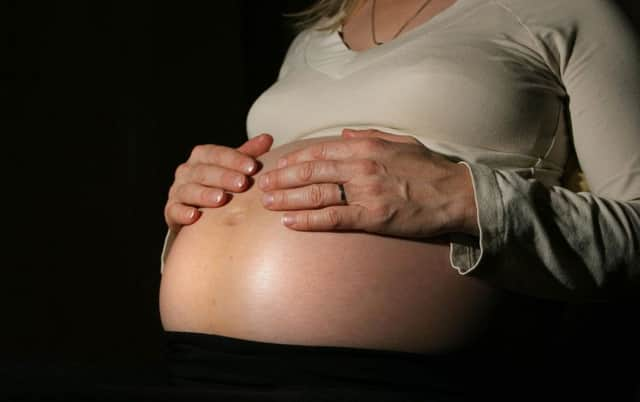Plan to issue free vitamins as rickets returns


Expectant mothers and young children would receive free supplements in an intervention being considered by the Scottish Government.
The move is intended as a measure to improve health rates amid concerns that many youngsters do not eat a balanced diet.
Advertisement
Hide AdAdvertisement
Hide AdThere is growing evidence that a significant proportion of the population has low vitamin D levels, with cases of the bone disease rickets rising in Scotland.
Yet just 13 per cent of babies are given vitamin drops by their parents – sparking calls for nationwide free provision.
The main source of vitamin D, which is needed for healthy bones, is sunshine on the skin – scarce during the winter months in Scotland.
The scheme would see thousands of women receive tablets containing vitamins C and D and folic acid, which can prevent birth defects. Youngsters would get free drops containing vitamins A, C and D.
The Scottish Government yesterday said it is carrying out a “review” of its provision of free vitamins, which are currently only given to families on benefits, under the Healthy Start scheme.
Official government advice is that all pregnant and breastfeeding women and children under five should take a supplement containing vitamin D, as well as other vitamins.
A study published in the British Medical Journal last week found widespread support for free vitamins among health professionals.
The study sought the views of almost 700 health professionals including midwives, doctors and health visitors.
Advertisement
Hide AdAdvertisement
Hide AdIt found they were “concerned” at the low uptake of the Healthy Start scheme and the consequences of this for children’s health. They believe giving free vitamins to all pregnant women and children under five would be more cost-effective. The study said vitamin supplements “minimise the risk of poor health outcomes”, adding that vitamin D deficiency is a “key concern”.
Dr Alison McFadden, research fellow in the School of Nursing and Midwifery at Dundee University, who led the BMJ study, said: “Studies show that a significant proportion of people are low in vitamin D. Pregnant and breast- feeding women are a high-risk group because if they are low in vitamin D, it is likely that their baby will be too, putting them at risk of convulsions and rickets.”
A separate report by NHS Health Scotland says that “a significant proportion of the UK population has low vitamin D levels, with reported cases of rickets increasing in Scotland in recent years.”
The latest UK-wide Infant Feeding Survey showed that by ten months of age just 13 per cent of babies were receiving vitamin drops.
A spokeswoman for the Scottish Government said that it was undertaking a review of the community pharmacy pilot scheme, with recommendations being presented in a final report by March